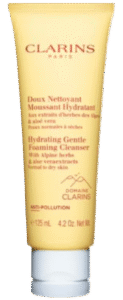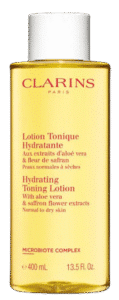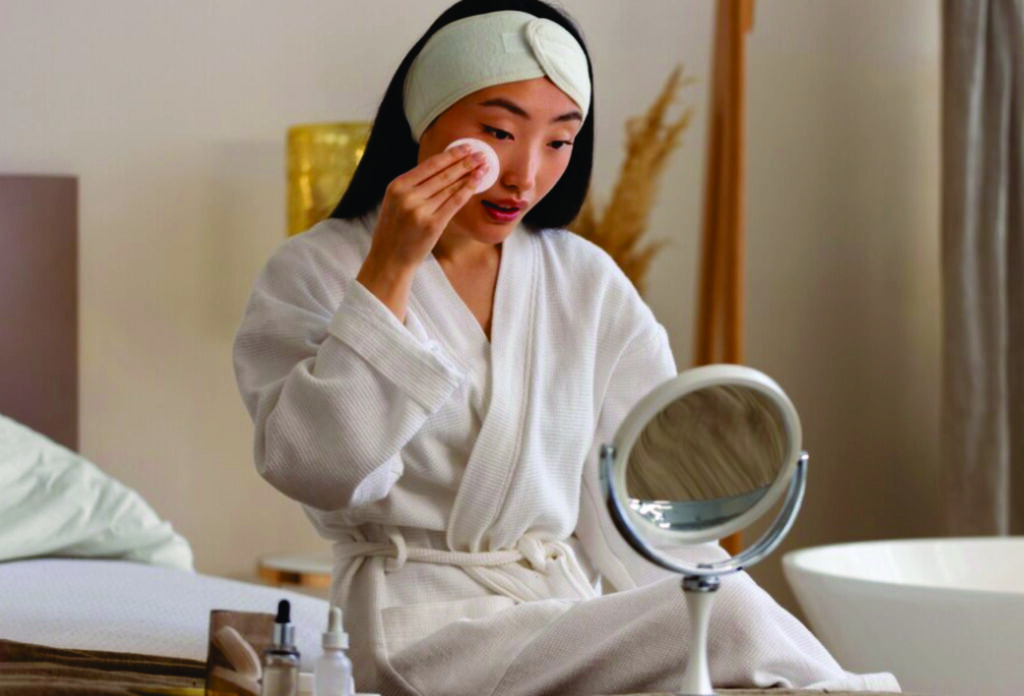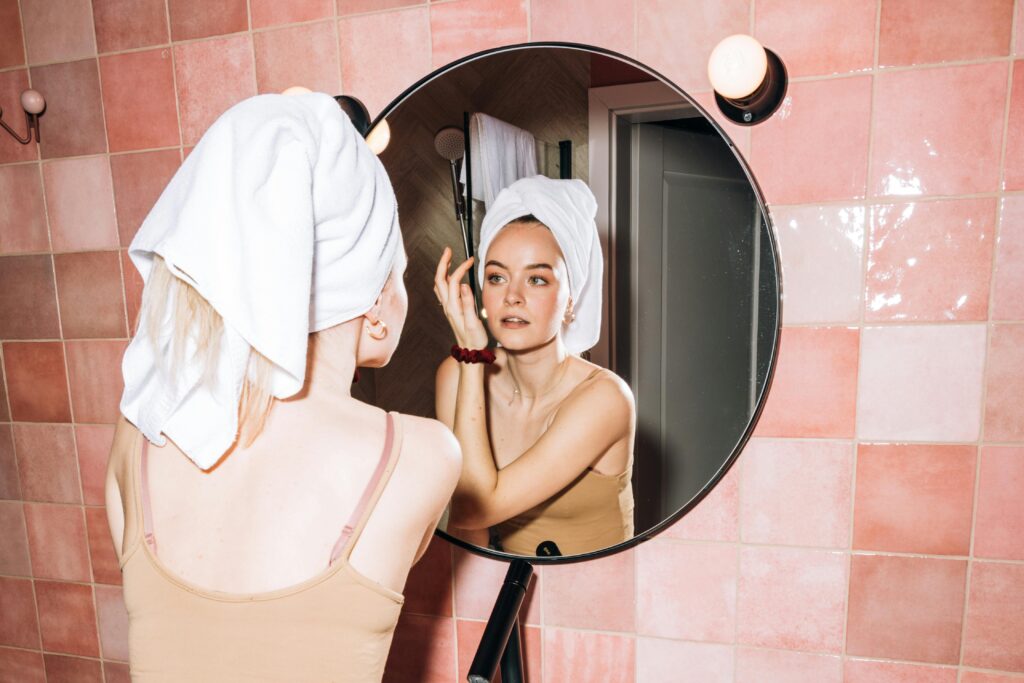For centuries, Aloe Vera in skincare has been a trusted remedy for hydration and skin repair. Packed with vitamins, minerals, and antioxidants, this plant provides deep nourishment and promotes skin recovery. Whether you’re dealing with dryness, irritation, or breakouts, aloe vera delivers natural relief. But what makes it so effective? Let’s explore its benefits, scientific backing, and real-life experiences from skincare enthusiasts.

Aloe Vera in Skincare: The Legendary Moisturizer and Savior for Troubled Skin
What Makes Aloe Vera So Beneficial?
Aloe vera is a succulent plant known for its thick, gel-filled leaves. Its gel contains over 75 active compounds, including vitamins A, C, and E, amino acids, and enzymes. These components work together to hydrate, soothe, and restore skin health.
Key Benefits of Aloe Vera in Skincare:
- Provides lightweight hydration without clogging pores.
- Calms redness, irritation, and inflammation.
- Accelerates wound healing and helps reduce scars.
- Stimulates collagen production for firmer, youthful skin.
- Acts as an antibacterial agent, making it ideal for acne-prone skin.
- Shields against environmental pollutants and strengthens the skin barrier.
Scientific Research: Studies published in the Journal of Dermatological Treatment confirm that aloe vera enhances skin hydration and improves wound healing (Journal of Dermatological Treatment, 2021).
Aloe Vera for Different Skin Types
One of aloe vera’s greatest advantages is its suitability for all skin types. Unlike heavy moisturizers, it absorbs quickly, delivering deep hydration without leaving a greasy residue.
How Aloe Vera Benefits Different Skin Types:
- Dry Skin – Penetrates deep into skin layers to retain moisture, preventing dryness and flakiness.
- Oily Skin – Hydrates without excess oil, helping regulate sebum production and preventing clogged pores.
- Sensitive Skin – Soothes redness and irritation caused by rosacea, dermatitis, or allergies.
- Acne-Prone Skin – Fights acne-causing bacteria, reduces swelling, and promotes faster healing.
Forum Experience: “I used to struggle with acne scars, and nothing seemed to work. A friend recommended applying pure aloe vera every night, and within a few weeks, my skin looked smoother and less inflamed!” – Lily, 27 (Skincare Forum)
Healing Properties: Aloe Vera for Skin Recovery
Aloe vera is more than just a moisturizer—it’s a powerful skin healer. Its anti-inflammatory and antimicrobial properties make it ideal for treating breakouts, sunburns, and minor wounds.
How Aloe Vera Helps with Skin Concerns:
- Soothes Sunburns – Provides cooling relief and accelerates skin repair.
- Heals Acne – Reduces bacteria while calming redness and swelling.
- Fades Scars – Supports cell regeneration for smoother skin texture.
- Treats Eczema & Psoriasis – Minimizes itching and discomfort.
- Reduces Puffiness – Helps de-puff under-eye bags with its cooling properties.
Scientific Research: Dermatologists from the American Academy of Dermatology suggest that aloe vera is effective in reducing sunburn severity and promoting faster healing (AAD, 2022).
Aloe Vera vs. Other Natural Moisturizers
Many natural ingredients offer hydration, but aloe vera stands out due to its lightweight texture and skin-healing benefits.
| Ingredient | Hydration Level | Best For |
|---|---|---|
| Aloe Vera | Deep, lightweight | All skin types, acne-prone |
| Shea Butter | Heavy | Dry and very dry skin |
| Coconut Oil | Rich | Dry skin but may clog pores |
| Hyaluronic Acid | Deep hydration | Dehydrated, aging skin |
| Jojoba Oil | Balanced | Combination and dry skin |
 How to Use Aloe Vera in Your Skincare Routine
How to Use Aloe Vera in Your Skincare Routine
💡 Editor’s Pick: Clarins Hydrating Gentle Foaming Cleanser
This creamy cleanser, enriched with Alpine herbs and organic Aloe Vera, transforms into a lush foam that removes impurities without drying. Gentle and effective, it leaves skin soft, hydrated, and refreshed. Users praise its mild scent and suitability even for sensitive skin.
1. Pure Aloe Vera Gel
For maximum benefits, apply pure aloe vera gel directly to the skin as a moisturizer or soothing treatment. Use it as a lightweight hydrator for oily skin, or layer it under a heavier cream for extra moisture in dry climates.
2. Aloe Vera in Moisturizers 
Look for aloe-infused creams and lotions to keep skin hydrated throughout the day. These products are especially beneficial for those who want continuous hydration without the stickiness of heavy creams.
💡 Editor’s Pick: Clarins Hydrating Toning Lotion with Aloe Vera & Saffron Flower
An alcohol-free toner that balances the skin’s microbiota while delivering soothing hydration with aloe vera and fig extract. It revitalizes, softens, and preps skin for moisturizer without irritation.
3. DIY Aloe Vera Face Masks
Mix aloe vera with honey or turmeric to boost its anti-inflammatory and skin-brightening effects. Adding yogurt or oatmeal can further enhance its soothing properties, making it a great treatment for irritated skin.
4. Aloe Vera for Sunburn Relief
Apply chilled aloe vera gel on sunburned areas for instant cooling and faster healing. For best results, store the gel in the fridge before applying it to affected areas.
5. Aloe Vera as a Spot Treatment
Use on acne spots to calm inflammation and speed up skin recovery. Dab a small amount onto blemishes before bed to reduce redness by morning.
6. Aloe Vera as a Makeup Primer
Acts as a natural primer, providing a smooth, hydrated base for makeup. Its lightweight texture helps foundation glide on effortlessly and last longer.
Personal Experience: Living by the sea means constant sun exposure. I apply aloe vera gel after a long beach day to prevent dryness and irritation. It’s been a game-changer for keeping my skin smooth and hydrated! I also use it under my sunscreen for an extra moisture boost.
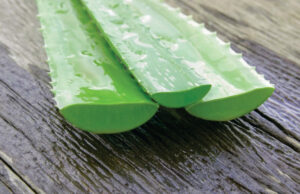
How to Choose the Best Aloe Vera Products
When selecting skincare with aloe vera, consider these factors:
- High Aloe Content – Choose products with 90% or more aloe vera to ensure maximum benefits.
- No Harsh Additives – Avoid fragrances, alcohol, and artificial colors that may irritate sensitive skin.
- Organic & Cold-Pressed – Cold-pressed aloe vera retains more nutrients and active enzymes, making it more effective.
- Quality Packaging – Dark-colored, airtight bottles help preserve potency by reducing light exposure.
- Complementary Ingredients – Look for added hyaluronic acid, green tea extract, chamomile, or vitamin C for enhanced hydration and skin protection.
- Dermatologist-Approved – Choose products that have been tested and recommended by skincare professionals.
Forum Experience: “I once bought an aloe vera gel that contained alcohol and fragrance—it dried out my skin terribly! Now, I only go for organic, fragrance-free versions, and my skin has never been happier.” – Sophie, 32 (Skincare Enthusiasts Forum)
Why Aloe Vera Is a Skincare Essential
With its hydrating, healing, and soothing properties, Aloe Vera in skincare remains one of the most versatile natural ingredients. It suits all skin types and provides relief for dryness, irritation, and breakouts. Whether used alone or combined with other skincare products, aloe vera is a must-have for achieving radiant, healthy skin.
Related Picks for Scalp & Hair
 💡 Hydrating Cream Scrub with Aloe Vera (Pre-Shampoo Scalp Exfoliant)
💡 Hydrating Cream Scrub with Aloe Vera (Pre-Shampoo Scalp Exfoliant)
A gentle pre-wash scrub that exfoliates and hydrates even the most sensitive scalps. Enriched with aloe vera and fermented agave extract, it soothes, refreshes, and improves scalp comfort.
💡 CHI Aloe Vera Oil
A lightweight blend with aloe vera, agave nectar, and silk proteins. It hydrates, strengthens weak hair, reduces frizz, and boosts shine—perfect for curls or sleek styles.

I’m Victoria, the creator behind Eva My Balance. Passionate about beauty, wellness, sustainable living, and mindful self-care. My mission is to inspire you to live consciously and beautifully—inside and out.

